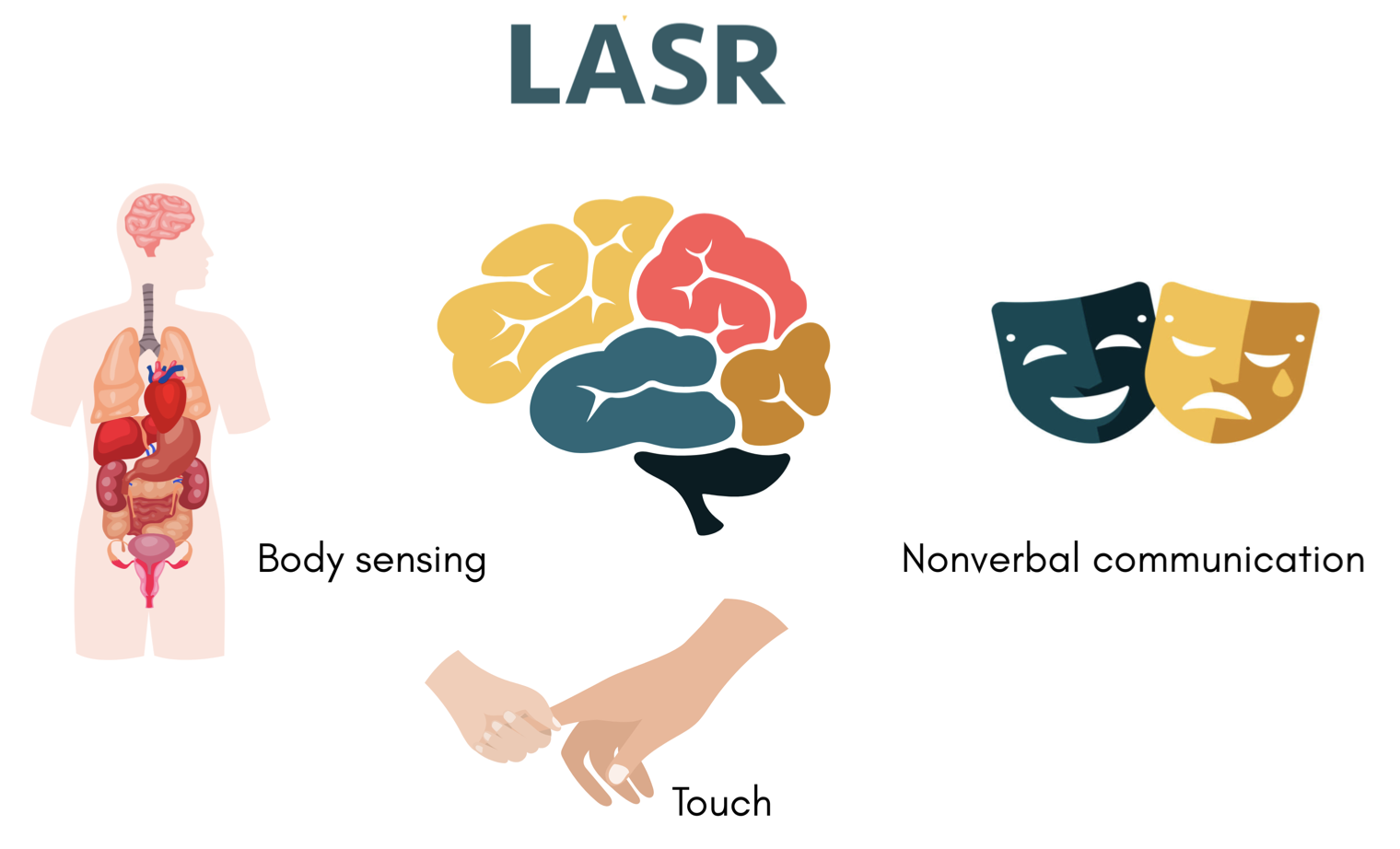Our Research

The goal of our lab is to progress toward a better understanding of autism, which affects 1 in 31 children in the U.S. While the experiences of individuals on the autism spectrum vary widely, it is defined by social difficulties and repetitive behaviors that impact the life of the individual and their loved ones. We endeavor to understand how these core features of autism are rooted in brain systems and their responses to sensory stimuli.
Through our five senses, the brain is bombarded with information from the external world, and it has the monumental task of filtering and evaluating the significance of all this information.
We also have additional senses that tell the brain about our internal world-- the state of our physical bodies in terms of the body’s position, health, and safety. Our sense of interoception—the information reaching our brain about how deeply we are breathing, how fast our hearts are beating, and what our digestive system is doing—signals our emotional state. This information must be continuously integrated with external sensory information to sustain interactions with others that involve emotions.
We also collaborate closely with other labs that are studying related ideas or using complementary techniques:
- With the BRAIN Lab at KU, we are seeking to understand how sensory and motor differences are related in autism and other neurodevelopmental disabilities.
- With the BAND Lab at Vanderbilt University Medical Center, we are studying the early development of sensory processing in infants with elevated familial likelihood of autism.
- With the Motor and Brain Development Lab at the University of Wisconsin, we are seeking to understand the role of the brainstem in sensory processing.
- With the Gauthier lab and the MEND Clinic at Vanderbilt, we are using ultra-high-resolution structural imaging of the visual system to understand face processing in autistic individuals.
- With the Landman lab (MASI) at Vanderbilt, we are using advanced machine learning-based tools for big data in the context of both brain imaging and electronic health records research applied to autism.
- With the Wallace lab at Vanderbilt, we are using virtual reality and multisensory neuroscience to investigate body sensing and repetitive behavior in autism.
- With the Embodied Cognition Group at Aarhus University (lab director: Micah Allen), we are using interoceptive psychophysics to understand body sensing in autism.
We’re grateful to the families and individuals who volunteer their time to our research studies.
Our current projects are supported by the National Institute of Mental Health (NIMH) and the University of Kansas Life Span Institute.